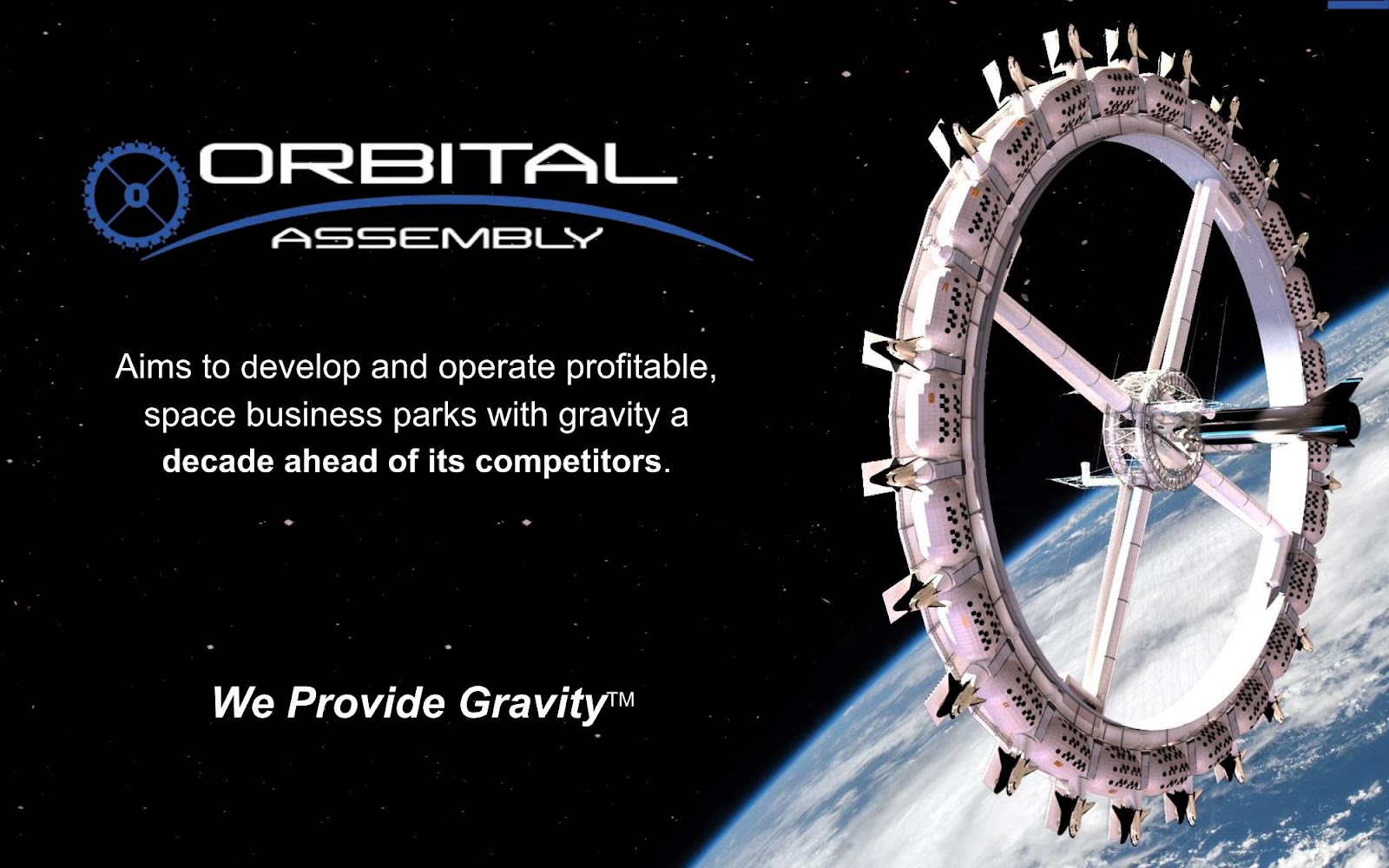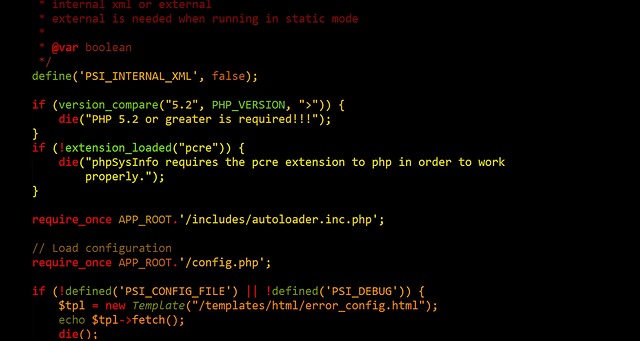What are the technological advancements propelling us further into the stars? Which companies are at the forefront of this intriguing field of space exploration via software development? How are their innovative solutions transforming our understanding of the universe? As the public interest in space discovery grows, so too does the need to optimize the technologies we use to explore the great beyond. Companies across the world are working tirelessly to advance our space exploration capabilities, particularly in the field of software development.
According to the National Aeronautics and Space Administration (NASA), despite the technological advancements, there are still notable limitations in current space software that contribute to barriers in team communication, data integration, and cost efficiency. The European Space Agency (ESA) further reports that as space operations become more complex, the need for advanced software development becomes increasingly critical. Proposing a solution to these problems within the United States not only promotes enhanced space communication and improved cost objectives but contributes to the global effort in advancing space technology.
In this article, you will learn about various software development companies making significant contributions to space exploration. The article will delve into the specific advancements they have created and how these advancements are shaping our understanding of outer space. From AI applications and automated software to communication technologies and data processing applications, these companies are leading the way in space tech.
You will also learn about the role of these companies within the broader context of space exploration. It will explore how they collaborate with governmental agencies like NASA and international entities like ESA. The essential contributions of private corporations in the public domain of space exploration reflect a vibrant and innovative industry, heralding a new era of discovery.

Definitions Related to Software Development for Space Exploration
Software Development: This is the process of writing, maintaining, and testing a set of instructions or programs that computers can interpret to perform a specific task. It includes the elements of conceiving, specifying, designing, programming, documenting, testing, and bug fixing.
Space Exploration: This is the discovery and study of celestial structures beyond the Earth’s atmosphere by means of continuously evolving and expanding space technology. It involves in-depth examination of planets, moons, stars, and galaxies.
Space Technology: This is the development of new technologies relating to space exploration and study. These technologies can include satellites, spacecraft systems and controls, astronautical engineering and more.
Space Tech Companies: These are organizations that design, produce, and deliver services and products for space science and exploration. Companies such as SpaceX, Blue Origin, and NASA are significant contributors in this sector.
Unveiling The Titans: Big-Scale Companies Elevating Space Tech by Investing in Software Development
Space Tech Software: An Accelerator for Interstellar Exploration
The emergence and rapid advancement of space technology software have undoubtedly catapulted the space exploration sector to unfathomable heights. In a universe filled with infinite curiosities and unsolved mysteries, software development has played a pivotal role in aiding our endeavor to unravel the enigmatic cosmos. The importance of software in running complex operations, managing colossal amounts of data, and improving the efficiency and effectiveness of missions is immeasurable.
Several leading-edge companies are pushing the boundaries of what’s possible in space technology. For instance, SpaceX’s incredibly sophisticated ‘Falcon’ software guides the Falcon rockets into orbit, and NASA’s ‘Viking’ software has been pivotal in Mars exploration. Likewise, other players in the space tech field, such as Lockheed Martin, Northrup Grumman, Blue Origin, and several burgeoning start-ups, are continually developing and innovating software that is a critical part of our voyage into space.
Driving Forces Behind the Stellar Leap
The driving forces behind these advancements and rapid progress in space exploration software are mainly attributed to the innovative prowess of companies and their commitment to pushing humanity’s understanding of the universe. Bold innovation often stems from intense competition, and the commercial space race has served as a potent catalyst for the growth of space tech software. An illustrative example of the competitive spirit fostering innovation is The Google Lunar XPRIZE, a competition that inspires and incentivizes companies to develop affordable access to the moon.
Here are some key elements that contribute to the vigorous development and application of software in the space tech industry:
- Artificial Intelligence and Machine Learning: These cutting-edge technologies provide automated solutions for tasks ranging from routine operations to browses life possibilities on other planets.
- Data Analytics: Massive amounts of data collected from missions are analyzed and interpreted using software applications. This helps researchers understand the universe better.
- Cybersecurity: As we delve further into space, the demand for cybersecurity will increase. Developing secure software systems will remain an utmost priority to protect valuable data.
There’s no question that the software powering space exploration has become an integral part of space tech. It supports the relentless quest for answers to our most profound questions about the cosmos. Its increasing sophistication and expanding possibilities hint at the future where interstellar travel and colonization of other planets might become a reality.
Beyond Earthly Boundaries: Groundbreaking Roles that Software Development Plays in Pioneering Space Tech
Does the Future of Space Exploration Rest on the Shoulders of Private Sectors?
Private sectors pioneering in software development are unequivocally leading a significant leap into the sphere of space exploration. They are not just echoing a technological echo in the industry but are striding with the tremendous potential to reshape how we perceive interstellar journeys. At this juncture, the question arises: Is the forward trajectory of space exploration industry significantly hinged on evolving software development outlook of these private firms?
The key innovation frames are tied to the relentless drive of software development organizations in fostering technologies for space exploration. Rapid strides in technology, compacting massive spacecraft commuting infrastructures into simple software programs, unravel new scientific discoveries, venture into the unknown realms of space, and cement the path for a future where interstellar travel could become a frequented activity.
Astronomical Challenges Rewrite the Innovation Scrip
However, as riveting as the prospects of software development in space technology sounds, it comes tethered with its unique set of challenges. The primary one being the ability to devise software that could withstand the abrasive external environment of space, both in terms of physical hardware and data processing capacities. Coupled with it is the challenge of continuous evolution – the ability to renew, revamp and restore these data systems from millions of miles away from Earth. The daunting, intricate task is in creating sophisticated, resilient systems that repudiate traditional restrictions and establish innovative solutions to these spatial roadblocks.
A considerable part of the constraints is in restructuring the idea of software development relegated to strictly Earth’s vicinity. Complete paradigm shifts in conceptualization are required, ensuring streamlined, robustly tested software functionalities that helm spacecraft to the furthest fringes of space.
Trailblazing Ventures: Redefining the Frontiers of Space Tech Development
The vision of celestial progress has not dampened the software developers’ spirits but instead has given rise to ground-breaking practices that are redefining the frontiers of space tech development. For instance – SpaceX’s Starship spacecraft command is credited to the Falcon software, an illustration of a marvel in software development. This techno-marvel demonstrates the prominent role of software in reaching space exploration goals.
Similarly, Amazon’s Project Kuiper aims to develop low Earth orbit satellites, enhancing internet connectivity worldwide. The project is solidifying novel concepts in space tech software development, encouraging innovators to step outside traditional domains and delve into the unseen. These instances underline how the ambit of software development for space-tech is not just limited to space travel. They epitomize how private firms can take significant steps towards establishing a dynamic sphere of software development that could be the mainstay of future space exploration efforts.
Picture-Perfect Interfaces: How Stellar Software Development is Powering Interactive Space Tech
The Gravity of the Situation
Do we consciously acknowledge the role of software in broadening the horizons of space exploration? Today, space technology is seeing an unprecedented surge in innovations with software development playing a pivotal role. Innovations in software are not just restricted to terrestrial landscapes but are expanding to cover the celestial sphere as well. This reflects in the surge of businesses keen to write their success saga within the realm of the infinite universe. Unearthing the corporate giants in the cosmos’s tech development gives an inkling of how programming and software development have integrated seamlessly into the space tech environment.
Challenges in Orbit
The trajectory to successful software development for space exploration is fraught with obstacles. The single most crucial one is that of reliability. Unlike most other fields, a single programming mistake could spell doom for a space mission, causing billions of dollars in losses and possibly years of hard work to disappear into a black hole. Accommodating for the hostile and unpredictable nature of the space environment adds another layer to the complexity. Spacecraft are exposed to extreme temperatures, strong radiation fields, and contrary to popular belief, even space isn’t free from traffic. Collision avoidance in crowded orbits necessitates robust software mechanisms.
Pushing the Frontier: Best Practices
Among the companies making interstellar strides, SpaceX stands out as an influential game-changer. Its Falcon and Dragon spacecraft both utilize a minimalist design and modern software systems, a departure from the traditionally complex machines employed in space exploration. Meanwhile, Planet Labs exemplifies unique practices in deploying a significant number of small-scale satellites or ‘Doves,’ assembled like cars on a production line. This iterated design philosophy allows for faster adaptation to technological advancements. NASA’s Juno spacecraft, orbiting Jupiter, is a testament to the power of efficient software development. The spacecraft’s intense radiation environment led to unprecedented software considerations, resulting in groundbreaking astronomical data.
Each of these companies embodies the pursuit of innovation, forging new paths in a challenging domain. Through robust and reliable software, their efforts are setting new standards for space technology and exploration. These examples illustrate the dynamic potential of software development and the current evolution of businesses into this otherworldly sector.
Conclusion
As you marvel at the wonders of space exploration, one cannot help but question: who are the great minds behind these revolutionary technologies? Clearly, software development for space exploration is not a solitary task. It’s a massive project that involves various tech quarters, from fledgling startups to multinational tech giants, all coming together and investing resources, manpower, and skills. These companies have truly changed the face of space exploration, propelling mankind into an era where the stars are no longer out of reach.
Our aim is to keep you updated on all significant developments in the world of space tech, and we invite you to stay tuned to our blog for more mesmerizing content. Your journey with us is just beginning; there is so much more to discover, understand and explore. Over time, we will delve deeper into the intricate networks of companies and innovators that contribute to our understanding of space and constantly redefine what is humanly possible.
We are excited about the upcoming releases as we continue to shed more light on the untapped potential of space exploration. It’s thrilling to imagine just how much remains undiscovered and we can’t wait to have you join us in uncovering these mysteries. One thing we can assure is that our future articles hold much more intrigue about the galactic explorations and the companies that make it all possible. Journey with us into the unknown, and together let’s celebrate mankind’s development and progress in the boundless domain of space.
F.A.Q.
Q1: Which companies are contributing significantly to software development for space exploration?
A: A large number of companies contribute to software development for space exploration but the most notable ones are SpaceX, NASA, and Blue Origin. These organizations are leading the innovation in space technology through the advanced software they develop.
Q2: What roles do these companies play in space exploration?
A: These companies pioneer the development and deployment of software applications used in various spacecraft, satellites, and probes. They play a crucial role in simplifying navigation, communication, data management, and scientific research in space.
Q3: How is software development for space tech different from regular software development?
A: Software development for space exploration requires a higher level of precision and reliability compared to regular software. In addition, such software must cope with extreme conditions and function without the possibility of in-person intervention or repair, which greatly influences the engineering and testing processes.
Q4: Can smaller tech companies contribute to space exploration?
A: Yes, in fact, numerous small tech firms are playing an integral part in building advanced software for space exploration. Not only do they create new technologies, they also improve and refine existing ones to better suit the requirements of space missions.
Q5: What does the future hold for software development in space tech?
A: As space exploration efforts continue to increase, more sophisticated and powerful software will be required. This means an expanding market and new opportunities for businesses in the sector, from startups to tech giants, to contribute to space technology.


